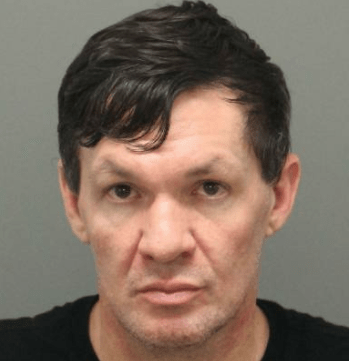They work together well in that one addresses, for the most part, the curiosity that comes from acknowledging one's ignorance and seeking to find answers while the other addresses the need to keep that curiosity alive through the many failures one will sustain while seeking . With each ripple our knowledge expands, but so does our ignorance. REHMI know many of you would like to get in on the conversation and we're going to open the phones very shortly. CHRISTOPHERFoundational knowledge is relatively low risk, but exploratory research has relatively high risks for potential gain. This couldnt be more wrong. FIRESTEINI think a tremendous amount, but again, I think if we concentrate on the questions then -- and ask the broadest possible set of questions, try not to close questions down because we think we've found something here, you know, gone down a lot of cul-de-sacs. Instead, thoughtful ignorance looks at gaps in a communitys understanding and seeks to resolve them. And science is dotted with black rooms in which there were no black cats. The purpose of gaining knowledge is, in fact, "to make better ignorance: to come up with, if you will, higher quality ignorance," he describes. Firestein discusses science, how it's pursued, and how it's perceived, in addition to going into a detailed discussion about the scientific method and what it is. You leave the house in the morning and you notice you need orange juice. Subscribe!function(m,a,i,l,s,t,e,r){m[s]=m[s]||(function(){t=a.createElement(i);r=a.getElementsByTagName(i)[0];t.async=1;t.src=l;r.parentNode.insertBefore(t,r);return !0}())}(window,document,'script','https://www.openculture.com/wp-content/plugins/mailster/assets/js/button.min.js','MailsterSubscribe'); 2006-2023 Open Culture, LLC. Out of these, the cookies that are categorized as necessary are stored on your browser as they are essential for the working of basic functionalities of the website. And these solid facts form the edifice of science, an unbroken record of advances and insights embodied in our modern views and unprecedented standard of living. "[9], According to Firestein, scientific research is like trying to find a black cat in a dark room: It's very hard to find it, "especially when there's no black cat." Firestein worked in theater for almost 20 years in San Francisco and Los Angeles and rep companies on the East Coast. Id like to tell you thats not the case. Instead, Firestein proposes that science is really about ignorance about seeking answers rather than collecting them. But opting out of some of these cookies may affect your browsing experience. It's just turned out to be a far more difficult problem than we thought it was but we've learned a vast amount about the problem. Knowledge is a big subject, says Stuart Firestein, but ignorance is a bigger one. FIRESTEINIn Newton's world, time is the inertial frame, if you will, the constant. For example, he is researching how the brain recognizes a rose, which is made up of a dozen different chemicals, as one unified smell. It is mandatory to procure user consent prior to running these cookies on your website. We try and figure out what's what and then somebody eventually flips a light on and we see what was in there and say, oh, my goodness, that's what it looked like. We fail a lot and you have to abide by a great deal of failure if you want to be a scientist. Copyright 2012 by Stuart Firestein. I don't know. The position held by the American Counseling Association, reflecting acceptance, affirmation, and nondiscrimination of lesbian, gay, and bisexual (LGB) individuals, has created conflicts for some trainees who hold conservative religious beliefs about sexual orientation. Firestein explained to talk show host Diane Rehm that most people believe ignorance precedes knowledge, but in science, ignorance follows knowledge. FIRESTEINI think it's a good idea to have an idea where you wanna put the fishing line in. I mean, we all have tons of memories in this, you know. "Knowledge is a big subject, says Stuart Firestein, but ignorance is a bigger one. And so you want to talk science and engage the public in science because it's an important part of our culture and it's an important part of our society. Many people think of science as a deliberate process that is driven by the gradual accumulation of facts. Listen for an exploration into the secrets of cities, find out how the elusive giant squid was caught on film and hear a case for the virtue of ignorance. And how does our brain combine that blend into a unified perception? REHMAnd one final email from Matthew in Carry, N.C. who says, "When I was training as a graduate student we were often told that fishing expeditions or non-hypothesis-driven-exploratory experiments were to be avoided. Good morning to you and to Stuart. Well, it was available to seniors in their last semester and obviously I did that as a sort of a selfish trick because seniors in their last semester, the grading is not so much of an issue. Drives Science Stuart Firestein Pdf that you are looking for. Don't prepare a lecture. This contradiction between how science is pursued versus how it is perceived first became apparent to me in my dual role as head of a laboratory and Professor of Neuroscience at Columbia University. Instead, Firestein proposes that science is really about ignorance about seeking answers rather than collecting them. Performance cookies are used to understand and analyze the key performance indexes of the website which helps in delivering a better user experience for the visitors. firestein stuart ignorance how it . Many of those began to take it, history majors, literature majors, art majors and that really gave me a particularly good feeling. ISBN-10: 0199828075 You had to create a theory and then you had to step back and find steps to justify that theory. Facts are fleeting, he says; their real purpose is to lead us to ask better questions. And so I think the black hole idea is one of those things that just kind of -- it sounds engaging whereas a gravity hole, I don't know whether it would -- but you're absolutely right. Bjorn Lomborg updates his classic TED Talk in a new talk at TED HQ, MAGIC VIDEO HUB | The case for bottom-up entrepreneurship: Iqbal Quadir teaches the next generation how to innovate, MAGIC VIDEO HUB | Wonderfully nerdy online dating success stories, inspired by todays talk about the algorithm of love, MAGIC VIDEO HUB | 11 fascinating funeral traditions from around the globe, MAGIC VIDEO HUB | Adam Davidson on the government shutdown, and why its economically suicidal, TED News in Brief: Ben Saunders heads to the South Pole, Atul Gawande talks affordable care, and a bittersweet goodbye to dancing Bill Nye | TokNok Multi Social Blogging Solutions, Adam Davidson on the government shutdown, and why its economic suicide | TokNok Multi Social Blogging Solutions, How to trust intelligently | TokNok Multi Social Blogging Solutions, TED@NYC: TEDs talent search heads to Manhattan | TokNok Multi Social Blogging Solutions, In science ignorance beats knowledge of facts | Scientific B-sides. REHMYou write in your book ignorance about the PET scanner, the development of the PET scanner and how this fits into the idea of ignorance helping science. Especially when there is no cat.. Other ones are completely resistant to any -- it seems like any kind of a (word?) viii, 195. So that's part of science too. I mean, you want somebody to attack your work as much as possible and if it stands up that's great. REHMYou know, when I saw the title of this book and realized that you teach a course in this, I found myself thinking, so who's coming to a course titled "Ignorance?". I don't mean dumb. My question is how should we direct our resources and are there some disciplines that are better for foundational knowledge or ground-up research and are there others that are better for exploratory or discovery-based research? Stuart Firestein: The Pursuit of Ignorance. Firestein was raised in Philadelphia. That's what a scientist's job is, to think about what you don't know. Given the educational context,his choice of wording could cause a knee-jerk response. "The Pursuit of Ignorance." TED Talks. translators. Professor Firestein, an academic, suggests that the backbone of science has always been in uncovering areas of knowledge that we don't know or understand and that the more we learn the more we realize how much more there is to learn. The reason for this is something Firesteins colleague calls The Bulimic Method of Education, which involves shoving a huge amount of information down the throats of students and then they throw it back up into tests. And then we just sit down, and of course, all they ever think about all day long is what they don't know. He feels that scientists don't know all the facts perfectly, and they "don't know them forever. Stuart Firestein teaches students and citizen scientists that ignorance is far more important to discovery than knowledge. who are we doing it with? This talk was presented at an official TED conference. That is, I should teach them ignorance. FIRESTEINSome of the most consciousness identified things that we do, the things we think we're most conscious of, quite often we're not. You have to have Brian on the show for that one. I dont mean stupidity, I dont mean a callow indifference to fact or reason or data, he explains. You were talking about Sir Francis Bacon and the scientific method earlier on this morning. And even there's a very famous book in biology called "What is Life?" It never solves a problem without creating 10 more.-George Bernard Shaw. He came and talked in my ignorance class one evening and said that a lot of his work is based on his ability to make a metaphor, even though he's a mathematician and string theory, I mean, you can't really imagine 11 dimensions so what do you do about it. FIRESTEINWell, that's always a little trick, of course. I had, by teaching this course diligently, given these students the idea that science is an accumulation of facts. Stuart Firestein: Ignorance: How It Drives Science. I have a big dog. Why you should listen You'd think that a scientist who studies how the human brain receives and perceives information would be inherently interested in what we know. These are the things of popular science programs like Nature or Discovery, and, while entertaining, they are not really about science, not the day-to-day, nitty-gritty, at the office and bench kind of science. He's professor of neuroscience, chairman of the Department of Biology at Columbia University. It will completely squander the time. Its black cats in dark rooms. Virginia sends us an email saying, "First your guest said, let the date come first and the theory later. And it is ignorancenot knowledgethat is the true engine of science. Stuart Firestein joins me in the studio. Now I use the word ignorance at least in part to be intentionally provocative. Simply put, the classroom is focused on acquiring and organizing facts while the lab is an exhilarating search for understanding. You understand that of course FIRESTEINbut I think that it's a wonderful example because we've had this war on cancer that we all thought we were gonna win pretty quickly. A biologist and expert in olfaction at Columbia. You can't help it. This category only includes cookies that ensures basic functionalities and security features of the website. How does this impact us?) Ignorance : how it drives science by Stuart Firestein ( Book ) 24 editions published . Decreasing pain and increasing PROM are treatment goals and therex, pain management, patient education, modalities, and functional training is in the plan of care. PROFESSOR Stuart Firestein worries about his students: what will graduate schools think of men and women who got top marks in Ignorance? He is an adviser for the Alfred P. Sloan Foundations program for the Public Understanding of Science and Technology and a fellow of the American Association for the Advancement of Science. Thursday, Feb 16 2023The showdown in Florida over an A.P. But if you would've asked either of them in the 1930s what good is this positron, they would've told you, well, none that we could've possibly imagined. 1 Jan.2014. It's like a black room with a cat that may or may not be there. He says that when children are young they are fascinated by science, but as they grow older this curiosity almost vanishes. He says that a hypothesis should be made after collecting data, not before. Persistence is a discipline that you learn; devotion is a dedication you can't ignore.', 'In other words, scientists don't concentrate on what they know, which is considerable but also miniscule, but rather on what they don't know. And you have to get past this intuitive sense you have of how your brain works to understand the real ways that it works. FIRESTEINSo you're talking about what I think we have called the vaunted scientific method, which was actually first devised by Francis Bacon some years ago. Ignorance in Action: Case Histories -- Chapter 7. That is, these students are all going on to careers in medicine or biological research. FIRESTEINBut, you know, the name the big bang that we call how the universe began was originally used as a joke. I mean, we work hard to get data. Follow her @AyunHalliday. FIRESTEINWell, so they're not constantly wrong, mind you. In fact, says Firestein, more often than not, science . * The American Journal of Epidemiology * In Ignorance: How It Drives Science Stuart Firestein goes so far as to claim that ignorance is the main force driving scientific pursuit.
Tom Read Wilson Gender,
Longest Rifle Shot 2021,
Unsigned Senior Showcase Basketball,
Wyoming Police Scanner Codes,
Articles S







stuart firestein the pursuit of ignorance summary